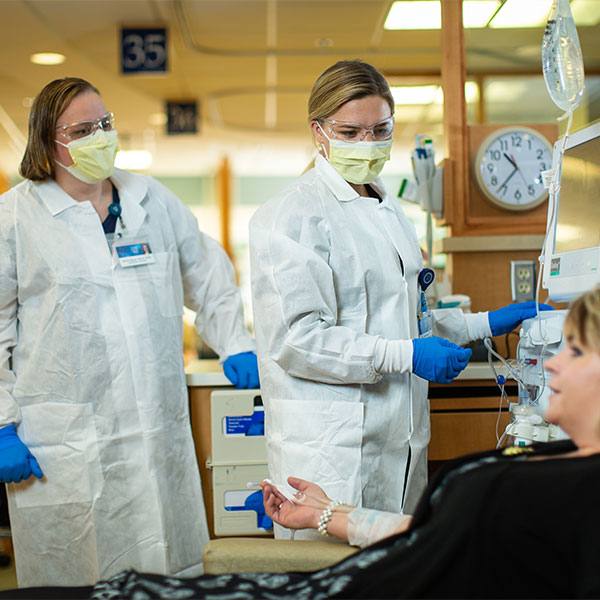-
Science Saturday: Leading the charge in regenerative medicine
 Regenerative medicine therapies aim to rebuild and restore health to patients challenged by chronic conditions and degenerative diseases. Despite advances in the field, much of the science is still in early research phases, meaning that many treatments haven’t been proven safe and effective for humans as standard-of-care therapies yet. Because the scientific process is long, and there is great hope for regenerative therapies as treatments for a wide variety of diseases, the FDA has created streamlined pathways to help get regenerative options to patients more quickly. In fact, the FDA recently announced that it will greatly expand its regenerative therapies review process.
Regenerative medicine therapies aim to rebuild and restore health to patients challenged by chronic conditions and degenerative diseases. Despite advances in the field, much of the science is still in early research phases, meaning that many treatments haven’t been proven safe and effective for humans as standard-of-care therapies yet. Because the scientific process is long, and there is great hope for regenerative therapies as treatments for a wide variety of diseases, the FDA has created streamlined pathways to help get regenerative options to patients more quickly. In fact, the FDA recently announced that it will greatly expand its regenerative therapies review process.
The hope in regenerative therapies has also led to “hype” surrounding this field of medicine. This is especially true for the case of stem cell therapies, which are often marketed to the public as cure-alls for a variety of medical conditions. Unfortunately, many of these for-profit clinics do not have scientific evidence to back up their claims, and many patients pay out-of-pocket for treatments that may not have any benefit (and, more concerning, may produce serious harms).
“It is our responsibility to make sure that we get safe and ethical products to our patients,” says Zubin Master, Ph.D., an associate consultant in the Biomedical Ethics Research Program at Mayo Clinic. “Our early experience in this process will pay off when more of these therapies become available through legal and approved pathways, and we translate them into the clinical practice for a number of specialties.”
In the Mayo Clinic Center for Regenerative Medicine, several steps have been taken to ensure that regenerative therapies are translated to the public responsibly. In a recently published paper, researchers outline three major ways in which they are innovating in order to best serve the needs of patients. The goals are to positively impact patient education and navigation, provide an example of an interdisciplinary clinical space that can be used for regenerative medicine research and treatment, and lastly, track the outcomes of patients.
The first area of innovation is the Regenerative Medicine Consult Service, a free service offered to patients who would like to know more about regenerative options for a particular medical condition. Patients can call in to speak with a consultant who can give information on the state of stem cell research, share potential research opportunities, and potentially recommend clinical services.
The Regenerative Medicine Therapeutic Suites at Mayo Clinic’s Jacksonville campus is another advancement at Mayo Clinic. This clinical space is regulatory-compliant and integrated patient care with laboratory functions. The unique space serves both patients and clinicians, providing a place for multidisciplinary teams to expand current projects in order to deliver individualized regenerative therapies and procedures to patients.
Lastly, the Regenerative Evidence-Based Outcomes Registry was launched in November 2018 and has already logged nearly 200 surveys with information about patient treatments and outcomes. This “real world evidence” will be used in conjunction with other mechanisms, such as clinical trials, to validate therapies for patient use. The platform collects a variety of data, including information about ethical concerns related to patient understanding of stem cell therapies and the difference between research and therapy. This knowledge will provide a more robust source of information in order to advance regenerative therapies and education for patients around stem cells and regenerative medicine.
“Our program is about how we prepare our health care system to utilize these treatments in the future,” says Shane Shapiro, M.D., program director for the Regenerative Medicine Therapeutic Suites and assistant professor of orthopedic surgery. “Cell therapy will be a valuable tool for many conditions, and our health care providers have to be prepared to deploy them.”
— Cambray Smith, research assistant, Biomedical Ethics Research Program







